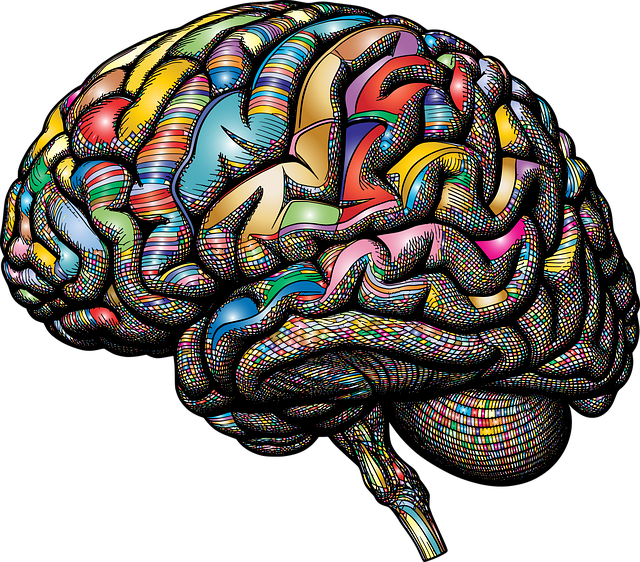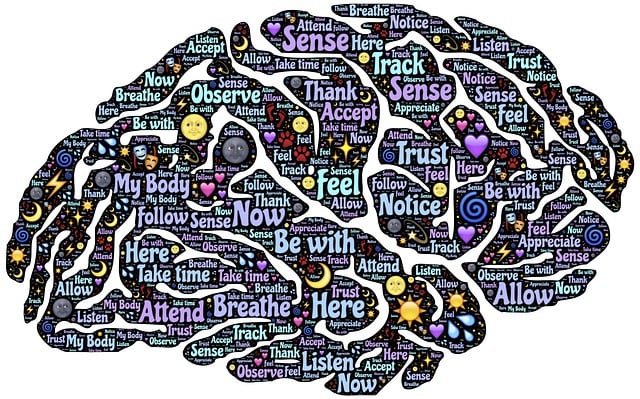Golden EMDR Therapy is a powerful crisis intervention strategy that combines eye movement desensitization and reprocessing with compassion cultivation practices for emotional healing. By fostering trust, validating emotions, and integrating memory processing, this therapy empowers individuals to develop robust coping mechanisms, enhance problem-solving skills, and promote long-lasting positive change. Mental health professionals must identify crises, assess risks, and utilize evidence-based tools like Golden EMDR, along with effective communication strategies and post-crisis support, for comprehensive care tailored to diverse cultural backgrounds.
In times of crisis, effective intervention strategies are paramount. This article guides you through a comprehensive approach to managing acute situations, focusing on Golden EMDR Therapy as a potent tool. We explore essential steps from understanding crisis intervention to post-crisis support. By delving into identifying and assessing crises, implementing communication strategies, and discovering recovery techniques, professionals can provide vital aid. Golden EMDR Therapy stands out, offering unique insights for navigating turbulent waters, ensuring individuals emerge with enhanced resilience.
- Understanding Crisis Intervention: A Brief Overview
- The Role of Golden EMDR Therapy in Crisis Management
- Identifying and Assessing Crisis Situations
- Implementing Effective Communication Strategies
- Post-Crisis Support and Recovery Techniques
Understanding Crisis Intervention: A Brief Overview

Crisis intervention strategies are vital tools for navigating through tumultuous situations and fostering emotional healing processes. At the heart of effective crisis support lies a deep understanding of the individual’s unique experience, which is where Golden EMDR Therapy shines as a game-changer. This therapeutic approach leverages the power of memory processing to help folks integrate distressing events into their lives in a healthier way. By facilitating emotional intelligence and enhancing one’s Mental Wellness Journaling Exercise Guidance, individuals can develop effective coping mechanisms.
The process begins by creating a safe space for the person to share their story without judgment. This initial step is crucial as it establishes trust and encourages vulnerability—a necessary foundation for any healing journey. With the individual’s consent, practitioners then guide them through techniques that help reprocess traumatic memories, reducing their intensity over time. By combining this with emotional intelligence strategies, crisis intervention becomes not just a temporary fix but a catalyst for long-lasting positive change.
The Role of Golden EMDR Therapy in Crisis Management

Golden EMDR Therapy plays a pivotal role in crisis intervention strategies, offering a unique and effective approach to managing intense emotional distress. This therapy technique leverages the power of eye movement desensitization and reprocessing (EMDR) to help individuals process traumatic memories and negative beliefs, fostering a sense of calm and resilience. By combining rapid bilateral stimulation with guided memory recall, Golden EMDR Therapy facilitates the brain’s natural healing process, allowing clients to reframe distressing experiences and develop healthier coping mechanisms.
Integrating compassion cultivation practices within Golden EMDR can further enhance its benefits. Encouraging individuals to cultivate self-compassion and empathy towards themselves during therapy sessions boosts their confidence in managing crises. This combination not only empowers individuals to face challenges with a positive mindset but also encourages the development of adaptive behaviors, ensuring better emotional well-being and enhanced problem-solving skills in times of crisis.
Identifying and Assessing Crisis Situations

Identifying and assessing crisis situations is a critical step in providing effective intervention. It involves recognizing signs of distress, such as sudden changes in behavior or severe emotional reactions, that may indicate an individual is at risk of harming themselves or others. Mental health professionals should be equipped with robust risk assessment tools to evaluate the severity and nature of the crisis. This process includes gathering comprehensive information about the person’s history, current circumstances, and the triggers that led to the crisis.
Golden EMDR Therapy, for instance, employs specialized communication strategies to help individuals process traumatic memories and emotions, which can be a powerful tool in managing crises. Additionally, building resilience is an integral part of crisis intervention. Professionals should guide clients towards developing coping mechanisms, enhancing problem-solving skills, and fostering a sense of self-efficacy to better navigate future challenges. Effective communication strategies, combined with a thorough risk assessment, form the backbone of successful crisis intervention.
Implementing Effective Communication Strategies

In times of crisis, effective communication becomes a powerful tool for intervention and support. One evidence-based approach that integrates robust communication strategies is Golden EMDR Therapy. This therapy technique encourages open dialogue, fostering an environment where individuals feel heard and understood. By employing active listening techniques and validating emotions, mental health professionals can build trust with clients, enabling them to process traumatic memories safely.
Additionally, Compassion Cultivation Practices can enhance these communication efforts. Encouraging empathy and understanding between the therapist and client creates a supportive space. This, coupled with Mental Health Awareness and advocacy for policy changes through Mental Health Policy Analysis and Advocacy, ensures that individuals receive comprehensive care tailored to their unique needs during crisis interventions.
Post-Crisis Support and Recovery Techniques

Post-crisis support is a vital component of crisis intervention strategies. Once an individual has navigated the immediate dangers, helping them recover and rebuild their life becomes paramount. Techniques such as Golden EMDR Therapy have proven effective in treating post-traumatic stress disorder (PTSD), enabling individuals to process traumatic memories and reduce distressing symptoms. This therapy, often combined with other evidence-based practices, facilitates emotional healing and resilience.
Providing ongoing support through conflict resolution techniques and fostering emotional intelligence can further aid recovery. Healthcare providers play a crucial role in this process, especially when they undergo comprehensive cultural competency training. Such training equips them with the skills to offer tailored care, ensuring that diverse individuals from various cultural backgrounds receive sensitive and effective post-crisis interventions. This holistic approach enhances overall recovery outcomes.
Crisis intervention is a multifaceted field that requires a comprehensive approach. From understanding crisis situations to implementing effective communication strategies, each step plays a crucial role in managing and recovering from these challenging events. As highlighted, Golden EMDR Therapy offers a unique and powerful tool for crisis management, aiding individuals in processing traumatic memories and promoting resilience. By combining various strategies discussed, professionals can provide holistic support, ensuring those facing crises receive the best possible care.











